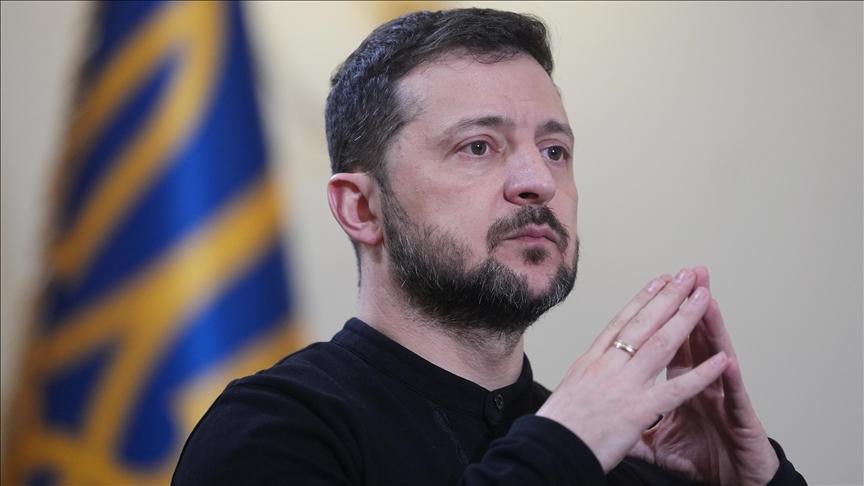Türkiye confirms death of FETÖ leader Gülen
ANKARA

Cars enter and leave through a security gate outside of the Chestnut Retreat Center on Oct. 21, 2024 in Saylorsburg, Pennsylvania.
Turkish intelligence sources have confirmed the death of Fethullah Gülen, the U.S.-based leader of the FETÖ terrorist organization, Turkish Foreign Minister Hakan Fidan announced on Oct. 21, saying that Ankara's fight against terrorism will continue.
"The ringleader of this dark organization has died," Fidan stated during a joint press conference with his Ukrainian counterpart, Andrii Sybiha, in the capital Ankara.
Earlier in the day, Turkish security sources also confirmed that the leader of the FETÖ terrorist organization behind the failed 2016 coup attempt died at the age of 83 in Pennsylvania, the U.S.
"The organization deceived thousands of our young people into joining its ranks in the name of the sacred values and turned them into a machine that betrayed their homeland, their nation and their values,” Fidan said.
The Turkish foreign minister said that these people are now being used as weapons against their own country in the hands of intelligence services abroad.
"With this death, I urge them to abandon this treacherous path of betrayal. I call on them to stop working against their state and nation. This path does not lead to a good end.”
He further asserted that Gülen's death will not cause Türkiye to "become complacent" in its fight against terrorism, vowing to continue efforts against all organizations.
Social media accounts affiliated with the terrorist group initially reported that Gülen died on Oct. 20, and his family members later confirmed his death.
The terrorist leader had been struggling with health issues for some time, suffering from kidney failure, diabetes and dementia.
Gülen lived in a sprawling estate in Pennsylvania for over two decades, using it as the headquarters of the terrorist group that orchestrated the failed coup attempt on July 15, 2016, in which more than 250 people were killed and over 2,700 were wounded in Türkiye.
FETÖ infiltrated key ministries, the military and the judiciary in Türkiye, strategically placing its members in critical positions. Following the failed coup, thousands of members were expelled from these posts.
Türkiye filed seven requests for the extradition of Gülen, who fled to the U.S. in 1999 and was listed in the “red” category of wanted individuals. He was stripped of his Turkish nationality in 2017. The terrorist leader was the prime suspect in 45 cases, including the coup attempt in 2016.
The Turkish security sources on Oct. 21 revealed that Gülen's close associates and other senior members of the terrorist group considered withholding news of his death out of concern that his body might be stolen. Despite this, they were forced to announce the death.
Gülen's death is expected to further deepen the ongoing chaos within the already divided organization, sparking a struggle over who will become the next leader, according to the sources.
The size of the organization's wealth is a major factor fueling the internal power struggle. This rift is expected to manifest in a split between the terror group’s Europe and the U.S. units, with activities in African countries likely to fall under European influence, while operations in Asian countries are expected to be controlled by the U.S., the sources said.
Recently, Gülen was captured in images being removed from his Pennsylvania estate, known as the "Chestnut Retreat Center," where he had resided since 1999. In April, reports surfaced on social media from individuals within the organization that Gülen was relocated against his will to a new residence, sparking further speculation about internal strife.
















